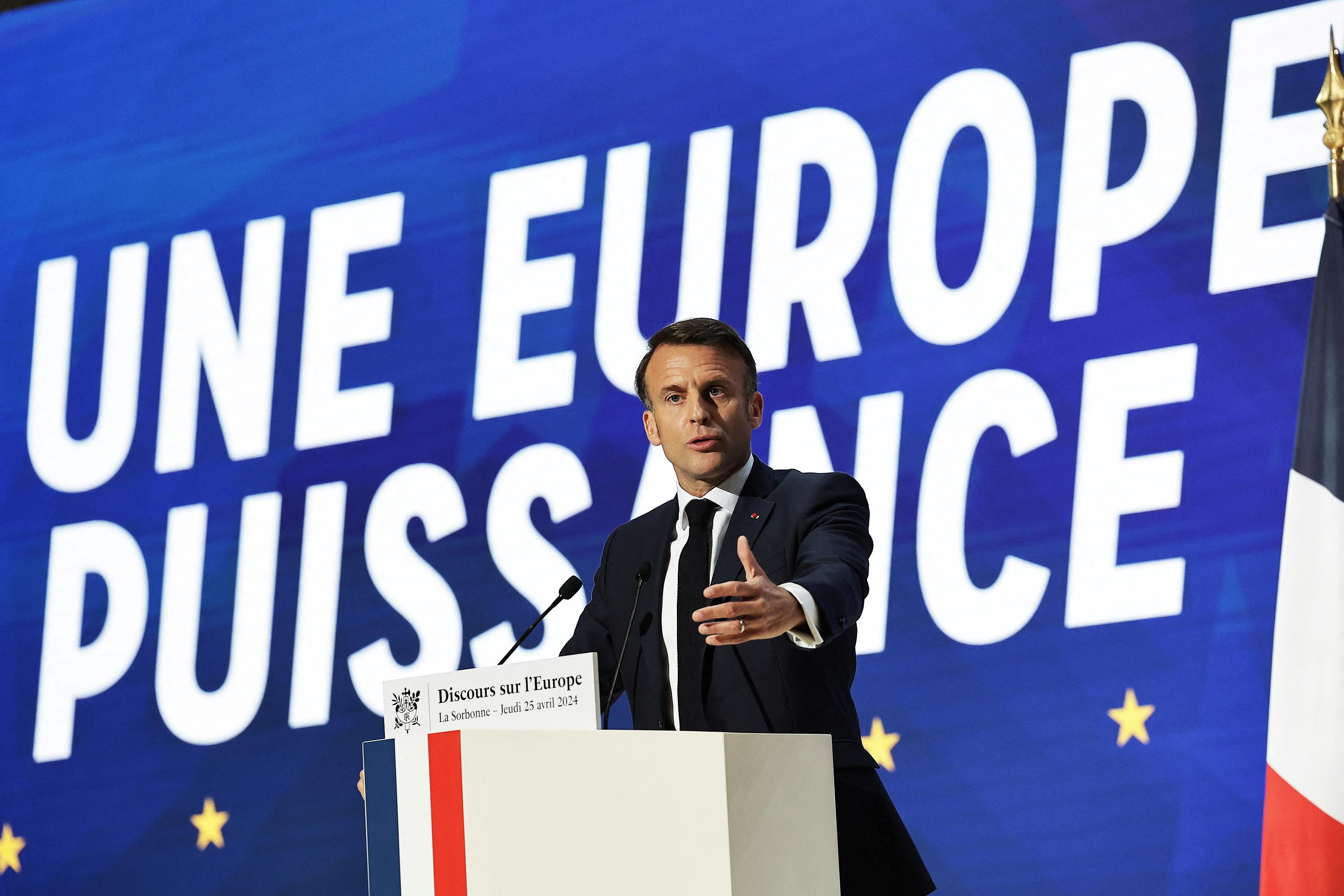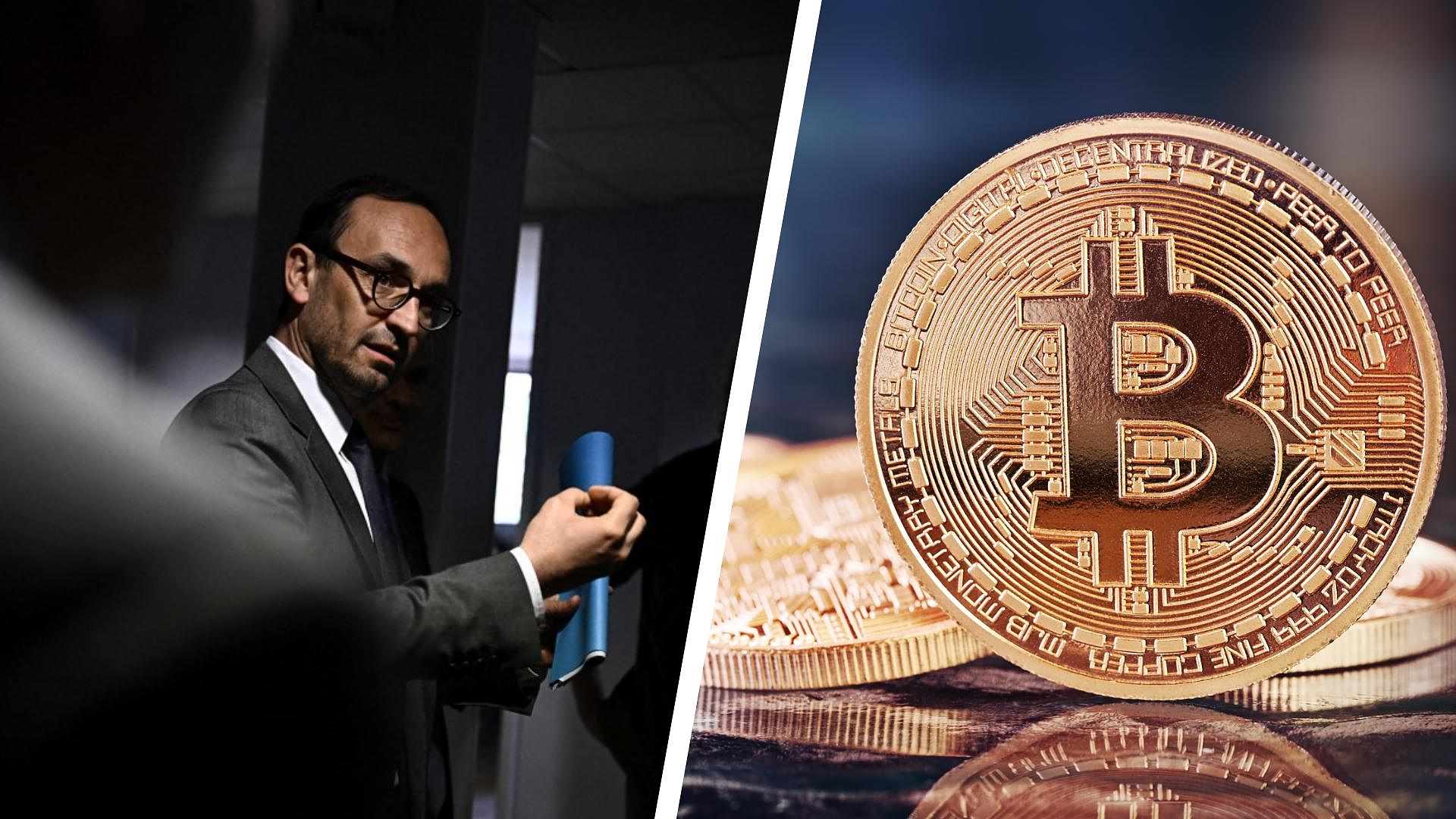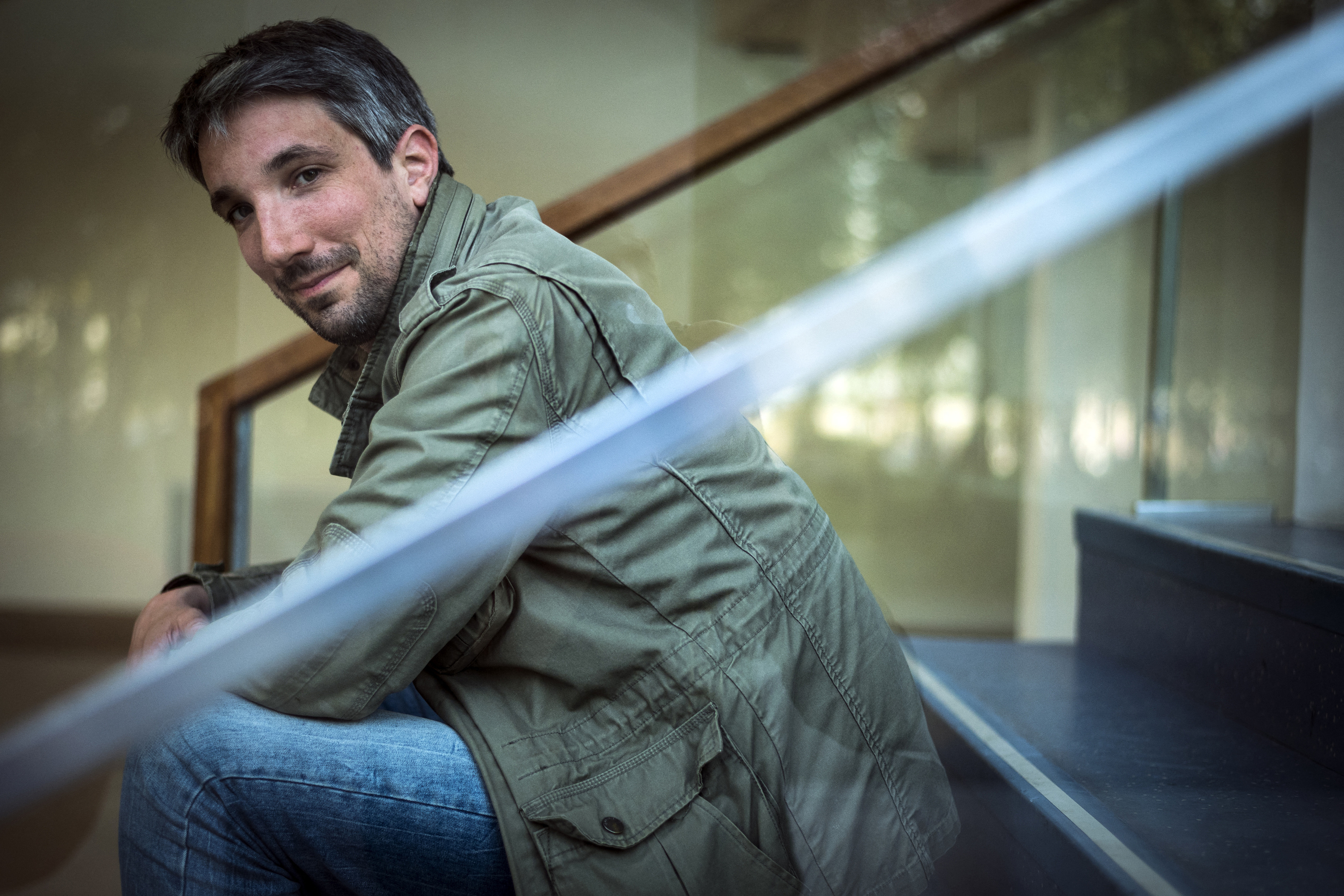In Russia, “dark times” have begun again”: this sentence ends an article written by Lyudmila Ulitzkaja in January 2022, five weeks before the beginning of the Russian war of aggression against Ukraine. The Russian writer says what has long been obvious: at the time the Russian human rights organization Memorial had just been banned, Ulitzkaja paid tribute to it in the text in question. Memorial, which has since been awarded the Nobel Peace Prize, was an anchor of humanity in Russia, a guarantee that the Stalinist past would not be forgotten. A democratic relic.
This text is called "Don't forget the memory", and this is also the name of the volume with essays and (autobiographical) stories by Ulitzkaja that has just been published in German. Ulitzkaja has been one of the most famous Russian authors for many years. She became known in the 1990s with the stories "Sonechka" and the novel "Medea and her children". Shortly after the start of the Russian war of aggression, the Kremlin opponent went into exile from Moscow to Berlin, where she lives today. When reading, one is of course curious to see how the 79-year-old looks back on the "dark times", how she experienced the turning point in time.
But for the most part, the volume "Don't forget the memory" is a personal memoir. Apart from three, the selected texts were written before February 2022. In them, Ulitzkaja deals with death and the dead of her family, she recalls her time as a samizdat activist and as part of bohemian art in Soviet Russia, she writes about her relationship to her body and her world view as a geneticist and biologist ( Ulitzkaja originally studied biology in Moscow).
Two core lyrics – “My Name” and “My Body and Its Scars” – are largely associative, non-chronological and written with almost no punctuation, sounding strongly of farewell; as if she didn't have much time left to write: "There is only one meaning left - to/ form daily life to text/ if I don't do that, there will be nothing left/ a question only for the Last Judgment - for who else .”
There is nothing wrong with these personal reflections; one reads them with profit. In the texts on her biography, her clothes, her sexuality there are also interesting thoughts and digressions on her understanding of the state, on anthropology, on the lack of freedom of the individual in Soviet times - she notes: "Part of my life happened in that time when a free person was perceived as a madman, a leper, a suicide, or just plain stupid. Being free was a crime. It was the time of communist totalitarianism.” You also get to know Ulitzkaja and the circle of oppositionists to which she went during Soviet times – she belonged to an artist clique around Andrei Krasulin, her current husband.
And yet there is a disconcerting focus in the few texts dealing with the world after February 24, 2022. To be sure, Ulitskaya despises and abhors the Kremlin's policies. In the last running text of the volume, she longs for the day when Putin will be put on trial and wishes that it would be modeled on the Nuremberg trials. As the war of aggression begins, she writes: "Pain, fear and shame - these are the feelings today."
But the perspective is always Russian. There is hardly a word of empathy about the Ukraine, about the Ukrainian victims, they actually only come up briefly once - as refugees looking for shelter and asylum in Berlin. Ulitzkaja deals with the Russian future more than with the Ukrainian one. In a recent interview, she also emphasized the close, centuries-old ties, the "blood relationship" between Ukrainians and Russians, and the long-standing dependence of Ukrainians on Russians. A perspective with which she is currently not making any friends in Ukraine.
It is interesting that when asked about the often claimed “Russian soul”, she herself speaks of a Russian cold mentality: “However, there has always been an astonishing lack of sensitivity among us when someone was being harmed. People inflicted suffering on others without feeling the slightest sympathy,” she says in a June 2022 interview that ends this volume.
"Don't forget the memory" is worth reading despite some blanks. One would like to agree with Ulitzkaja in many respects, for example when she writes about the complete lack of civil society structures and the lack of a culture of remembrance in Russia or when she deals - somewhat too fatalistically - with the climate catastrophe. Nevertheless, it is irritating that the Ukrainians and the currently difficult relationship between Ukrainian and Russian intellectuals appear so little in it.
Lyudmila Ulitzkaja: Don't forget the memory. Translated from the Russian by Ganna-Maria Braungardt and Christina Links. Hanser, 192 pages, 23 euros

 What is chloropicrin, the chemical agent that Washington accuses Moscow of using in Ukraine?
What is chloropicrin, the chemical agent that Washington accuses Moscow of using in Ukraine? Poland, big winner of European enlargement
Poland, big winner of European enlargement In Israel, step-by-step negotiations for a ceasefire in the Gaza Strip
In Israel, step-by-step negotiations for a ceasefire in the Gaza Strip BBVA ADRs fall almost 2% on Wall Street
BBVA ADRs fall almost 2% on Wall Street Breast cancer: less than one in two French women follow screening recommendations
Breast cancer: less than one in two French women follow screening recommendations “Dazzling” symptoms, 5,000 deaths per year, non-existent vaccine... What is Lassa fever, a case of which has been identified in Île-de-France?
“Dazzling” symptoms, 5,000 deaths per year, non-existent vaccine... What is Lassa fever, a case of which has been identified in Île-de-France? Sánchez cancels his agenda and considers resigning: "I need to stop and reflect"
Sánchez cancels his agenda and considers resigning: "I need to stop and reflect" The Federal Committee of the PSOE interrupts the event to take to the streets with the militants
The Federal Committee of the PSOE interrupts the event to take to the streets with the militants The growth gap between Europe and the United States will narrow in 2025
The growth gap between Europe and the United States will narrow in 2025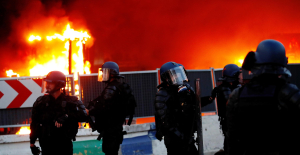 A report recommends the creation of a “riot fund” to cover communities
A report recommends the creation of a “riot fund” to cover communities With 3.5 billion euros collected, life insurance recorded its best month in 10 years in March
With 3.5 billion euros collected, life insurance recorded its best month in 10 years in March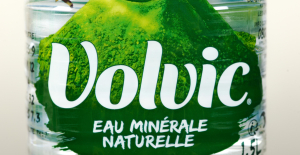 Volvic factory shut down after “an act of malicious intent”: production can resume “at the earliest” on Friday
Volvic factory shut down after “an act of malicious intent”: production can resume “at the earliest” on Friday Jean Reno publishes his first novel Emma on May 16
Jean Reno publishes his first novel Emma on May 16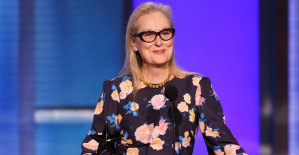 Cannes Film Festival: Meryl Streep awarded an honorary Palme d’Or
Cannes Film Festival: Meryl Streep awarded an honorary Palme d’Or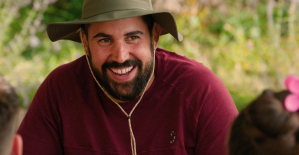 With A Little Something Extra, Artus and his disabled actors do better than Intouchable on the first day
With A Little Something Extra, Artus and his disabled actors do better than Intouchable on the first day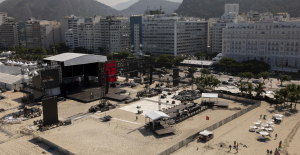 Madonna ends her world tour with a giant - and free - concert in Copacabana
Madonna ends her world tour with a giant - and free - concert in Copacabana Omoda 7, another Chinese car that could be manufactured in Spain
Omoda 7, another Chinese car that could be manufactured in Spain BYD chooses CA Auto Bank as financial partner in Spain
BYD chooses CA Auto Bank as financial partner in Spain Tesla and Baidu sign key agreement to boost development of autonomous driving
Tesla and Baidu sign key agreement to boost development of autonomous driving Skoda Kodiaq 2024: a 'beast' plug-in hybrid SUV
Skoda Kodiaq 2024: a 'beast' plug-in hybrid SUV The home mortgage firm rises 3.8% in February and the average interest moderates to 3.33%
The home mortgage firm rises 3.8% in February and the average interest moderates to 3.33% This is how housing prices have changed in Spain in the last decade
This is how housing prices have changed in Spain in the last decade The home mortgage firm drops 10% in January and interest soars to 3.46%
The home mortgage firm drops 10% in January and interest soars to 3.46% The jewel of the Rocío de Nagüeles urbanization: a dream villa in Marbella
The jewel of the Rocío de Nagüeles urbanization: a dream villa in Marbella Europeans: a senior official on the National Rally list
Europeans: a senior official on the National Rally list Blockade of Sciences Po: the right denounces a “drift”, the government charges the rebels
Blockade of Sciences Po: the right denounces a “drift”, the government charges the rebels Even on a mission for NATO, the Charles-de-Gaulle remains under French control, Lecornu responds to Mélenchon
Even on a mission for NATO, the Charles-de-Gaulle remains under French control, Lecornu responds to Mélenchon “Deadly Europe”, “economic decline”, immigration… What to remember from Emmanuel Macron’s speech at the Sorbonne
“Deadly Europe”, “economic decline”, immigration… What to remember from Emmanuel Macron’s speech at the Sorbonne These French cities that will boycott the World Cup in Qatar
These French cities that will boycott the World Cup in Qatar NBA: the Pacers and the Knicks will be there in the play-off semi-finals
NBA: the Pacers and the Knicks will be there in the play-off semi-finals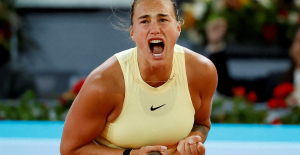 Tennis: like last year, Sabalenka joins Swiatek in the final in Madrid
Tennis: like last year, Sabalenka joins Swiatek in the final in Madrid OM: scorer against Bergamo, Mbemba moved after the final whistle
OM: scorer against Bergamo, Mbemba moved after the final whistle OM-Atalanta: the lines of the match
OM-Atalanta: the lines of the match





